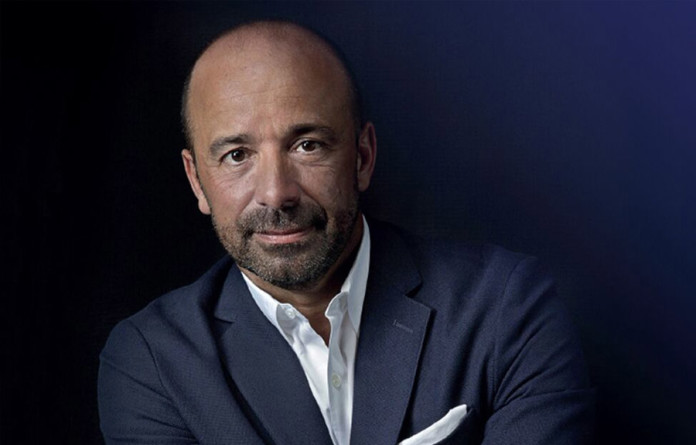In this exclusive interview with Asia Business Law Journal, our sister publication, Miguel de Serpa Soares, Under-Secretary-General for Legal Affairs and United Nations Legal Counsel, talks to John Church about his legal team and the crucial work being done in Asia and further afield to promote free trade and economic development
As far as legal jobs go, they don’t come any bigger or more significant. Miguel de Serpa Soares, under-secretary-general for legal affairs and United Nations legal counsel, is the man António Guterres turns to before sending in the peacekeepers, constructing a complex multilateral treaty or negotiating any international issue that requires legal gravitas.
Born in Angola and raised and educated in Portugal, the UN’s top lawyer prior to this prestigious appointment was director general of the Department of Legal Affairs in the Ministry of Foreign Affairs of Portugal, from 2008 to 2013.
An affable man with a concise and direct point of view, a recent law lecture he delivered in Beijing to keynote the Asian Infrastructure Investment Bank’s (AIIB) inaugural Legal Week, held in October 2017, drew the admiration of invited GCs of some of the biggest international financial institutions (IFIs) in the region and further afield, as well as academics and keen law students who had come to hear his views on “The Necessity of Co-operation between International Organizations”.
“It’s enormous but it’s very interesting,” he says of his work with a wry smile, in an exclusive interview with Asia Business Law Journal. “I do believe I have one of the best legal jobs in the world.”
More than four years into the job and he observes his time at the UN has shored up some personal beliefs. “More and more these four years have reinforced the conviction that we need to live in an international order that is based on norms and rules, and not on sheer power,” he says. “The Office of Legal Affairs was established in 1946, and when you think of it, it’s curious why in 1946 member states felt the need to have a legal office immediately on the origin of the UN. I think that answers the wish of having an organization based on norms and rules.
“For instance, it is important also to note how relevant the work of international courts and tribunals, in particular the International Court of Justice, is for the promotion of this international order based on norms and rules. Sometimes, it may be unnoticed how many conflicts have been avoided by the work of international tribunals, for instance by means of the peaceful settlement of disputes. So, it’s not only about a wider appreciation of international law, but also about peace, which is a prerequisite for sustainable development and economic growth.”
You must be a
subscribersubscribersubscribersubscriber
to read this content, please
subscribesubscribesubscribesubscribe
today.
For group subscribers, please click here to access.
Interested in group subscription? Please contact us.
你需要登录去解锁本文内容。欢迎注册账号。如果想阅读月刊所有文章,欢迎成为我们的订阅会员成为我们的订阅会员。
HIS TEAM
Miguel de Serpa Soares introduces the structure of his legal team and how it works very simply, with six divisions and the division of labour by subject.
“We have the Office of the Legal Counsel which is in my immediate vicinity, and this covers the more political issues: peace and security; issues related to the interpretation of the [UN] Charter; peacekeeping operations – usually the stuff that makes headlines, that will land on my office desk,” he says. “Then I have a large internal division, the General Legal Division, which deals mostly with management and administrative issues, which is very important in the organization, and is very involved in the management reform process, etc.
“I have a Division for Ocean Affairs and the Law of the Sea, which is a specialized division dealing with the UN Convention on the Law of the Sea [UNCLOS], but also with all the different processes that exist in the General Assembly for sea and ocean matters.
“I have a highly specialized division in Vienna covering international trade law, and this is the secretariat of UNCITRAL [the United Nations Commission on International Trade Law], a small team but highly specialized in international trade law matters.
“Then I have a Treaty Section, because the secretary-general [António Guterres] is usually the depositary of the multilateral treaties that are concluded under the auspice of the UN, and this is more than 560, a huge amount of legal documents to manage. These are live documents, mostly multilateral treaties but also involving registration of bilateral treaties.
“Finally I have a Codification Division, a strange name but they do exactly that, assisting the international bodies that try to codify international law, i.e. the International Law Commission, where a big part of international treaties has been drafted and negotiated, and also it serves as the secretariat to the Sixth Committee of the General Assembly, which is the committee of international law.”
These divisions account for about 200 people, and he says they represent a good mix of competences. “But I’m very proud of the geographical diversity because I think it’s very important, and I’m happy that my staff reflects the diversity of the UN, so 60 nationalities into 200 is very good, and gender balance is also important, and we have a very balanced department in terms of gender.”






















